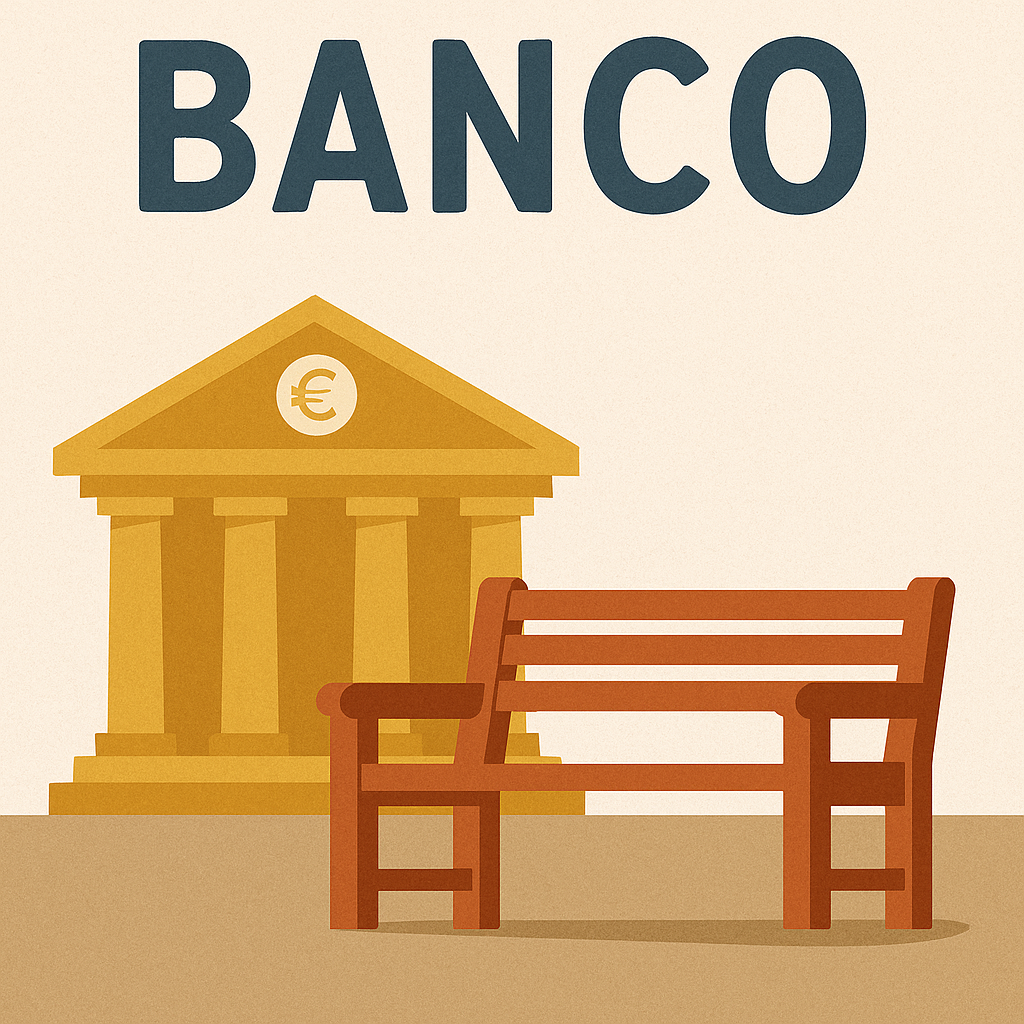
Common Pitfalls
Banco: A Bank, A Bench — or Both?
You’ve probably seen the word banco in Portuguese.
Maybe on a street corner, in a park... or in your online banking app.
That’s because in Portuguese, banco can mean both:
- A bank (financial institution)
- A bench (seat, usually for two or more people)
At first glance, this seems confusing until you trace the word back to its Latin origin.
🏛️ From Latin to Ledger
The word banco comes from the Late Latin word bancus, meaning a long bench or table.
In medieval Italy, money changers would sit on long benches in marketplaces, doing their financial work atop them. These benches became associated with financial services.
Eventually, banco came to refer to the institutions themselves and the financial meaning stuck.
🇵🇹 One Word, Two Roles
In modern European Portuguese:
- Sente-se no banco. = Sit on the bench.
- Tenho de ir ao banco. = I have to go to the bank.
The context tells you which meaning is intended no confusion for native speakers.
But for learners, it’s an easy one to double-take on.
🧠 Language Learning Insight
Words like banco are great reminders that:
- False friends aren’t always false, sometimes they’re just unexpectedly versatile.
- Latin roots often explain odd overlaps in meaning.
- The history of a word can clarify modern usage and make it easier to remember.
Final Thought
Next time you see banco in a sentence, don’t worry you’re not misreading.
You’re just seeing one Latin word living two lives.
And the bench you sit on and the bank you visit? They’re closer than you think.